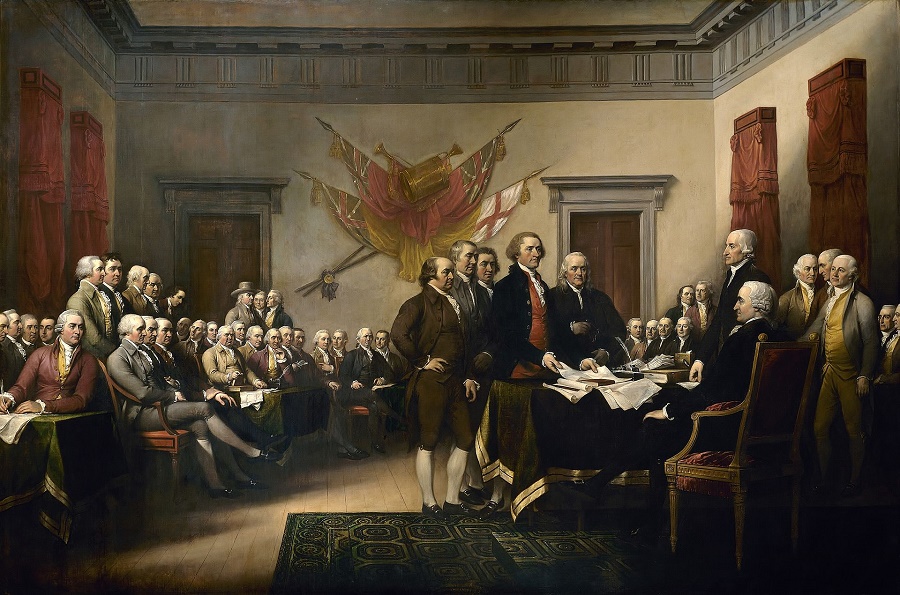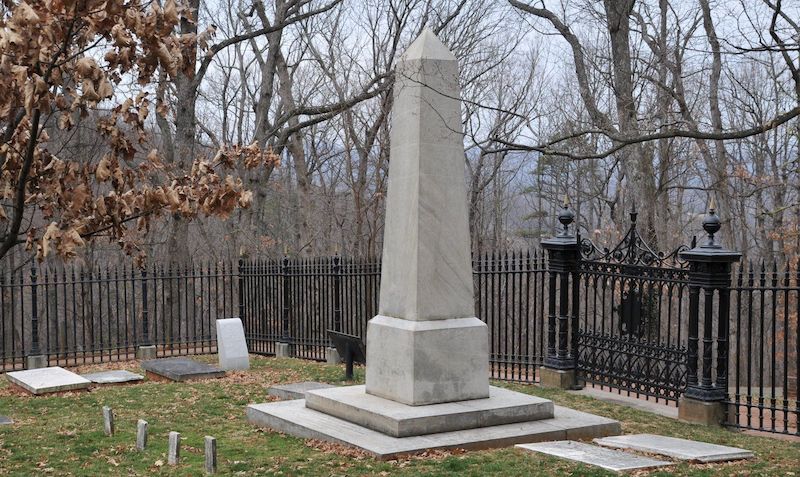Thomas Jefferson - The Founding Father

Thomas Jefferson, the third American president, played an important role in America's independence struggle. Besides politics, Jefferson was also a scientist, musician and a strong proponent of public education. In addition to that, he was one of the greatest contributors to human progress.
Early Life
Jefferson was born into a wealthy family in Virginia. Peter Jefferson was his father and he earned a living as a rich surveyor and plantation owner. Jane Randolph, Thomas Jefferson;s mother, was from one of the richest families in Virginia. He was the eldest son born to his parents, and a third born overall. His father willingly supported the young Jefferson;s education. Consequently, he ensured that his son had some of the best opportunities for education available at the time. Jefferson thus became one of the most educated and influential persons at that time.
When he was seventeen years old, Jefferson secured admission in William and May. During his time there, he read widely on a range of topics. This included science, philosophy and law. In addition, Jefferson also learned French, Spanish and Italian. The college, which was located in the colony;s capital of Williamsburg, provided Jefferson with a glimpse of how government works. This knowledge would undoubtedly be crucial when he later on joined government.
In the year 1761, he gained admission to the bar, establishing a practice that enjoyed much success. However, he had to abandon the practice when the war. Instead, he chose to use his legal skills to contribute positively towards the struggle for independence. In 1769, when he joined the United States; first elected body, he began building the Monticello. This was after he inherited a considerably huge estate form his father.
Three years after construction began he got married to Martha Wayles Skelton. The union lasted ten years and produced six children. His wife died after ten years of a happy marriage; Jefferson never remarried. However, only two of his six children survived to adulthood. He continued to live in Monticello for the rest of his life. Like most other building by Jefferson, Monticello was a unique creation.
Jefferson and Slavery
Throughout his life, Jefferson remained a slave owner. The issue of slavery remained a contradictory part of his life. At one time, he even attempted to launch a plan for the gradual freeing of slaves. However, he believed that black people were a different species altogether from white people. As a result, it was not possible for the two races to exist together in peace. When he eventually died, Jefferson owned six hundred slaves. He freed some in his will while the rest of his slaves were auctioned off.
Thomas Jefferson and the American Revolution
Being a great believer in independence, he supported the independence efforts. This belief was strengthened by his life in the wilderness of Virginia. At the time, there was very poor road network and the presence of government was scant. However, despite living far from centers of civilization. The plantation owners were still civil and lived harmoniously. In light of his beliefs, Jefferson wrote extensively on the topic of the people;s right to govern themselves. His literature was read well beyond the borders of Virginia. Most people came to recognize his exemplary writing skills. His ability to win the hearts and minds of people through mere words was recognized throughout the colonies. When the revolutionary war began in the year 1775, Jefferson was selected as a congress delegate. Despite the fact that his oratory skills were quite poor, his writing skills were superb. Consequently, he was chosen to make a Declaration of Independence draft. His legal expertise was also part of the reason he was chosen. The independence fighters wanted to ensure the document did not have any errors. Thomas Jefferson was nominated from a five-member committee selected by the continental congress. The committee also constituted John Adams and Benjamin Franklin. He and John Adams would go on to form a strong bond that would last for the rest of their lives.

Before he began writing his first draft, Jefferson aged 33 at the time first discussed it with the committee. In short, it was an explanation of what the American Revolution was. Until that time, the goals of the American Revolution had not been put to paper. In addition to that, it was used to serve as a reference point for why the thirteen colonies were engaged in war with the British. After much deliberation, a document, which detailed the aspirations of the people to gain independence, was approved. The final document was adopted on July 4, 1776.
Governor and Legislator
In 1776, he resigned from the Continental Congress and returned to Virginia. There, he was immediately re-elected to the House of Delegates. It had formerly been known as House of Burgesses. Jefferson believed that the independence struggle was more than just a struggle against foreign rule. He believed that it was a struggle for the right of every individual. Thus, he set out to change the laws of aristocracy by birth; he himself was part of this aristocracy. He changed the law so that talent and virtue would determine aristocracy henceforth. His bill on Freedom, was what he considered his greatest achievement. The bill was deliberate for over seven years, eventually being passed in 1786. Another bill, which would have created the public schools system in Virginia never passed.
The bill on religious freedom essentially separated the church and state. It also served for the basis of the First Amendment of the constitution, which protects people;s right to worship as they deem fit. His time as governor of Virginia was not entirely rosy. Firstly, the governor had very little power. Secondly, the British invaded Virginia and the entire legislature and executive ran away. Everyone felt that Jefferson was to blame. However, there was little that he could have done even if he had stayed. An inquiry did later clear him of any wrongdoing. The criticism he received at the time was so intense that he vowed never to serve in public office again.
Service to Congress
Until that time, there were no legal agreements with other European powers for commerce except France. Recognizing the importance of commerce to the American economy, a three-man committee consisting of Benjamin Franklin, John Adams and himself was formed. It was supposed to come up with coherent policies for trade with the European powers. His writing skills were also crucial in the drafting of the peace treaty between the United States and Britain, signed in 1783. Later on, he replaced Benjamin Franklin as ambassador to France in 1785. In 1789, he eventually returned to the United States.
Road to The Presidency
In the 1790s, Jefferson co-founded the Republican Party, which advocated lesser government. This was in order to oppose the Federalist Party led by Hamilton, which advocated larger federal government. In the elections, he lost and came second to John Adams, which automatically made him vice president.
Jefferson as President
In 1800, the unusually bitterly contested election saw Jefferson emerged victorious. He was sworn in as President in 1801 on March 4. During his inaugural speech, Jefferson highlighted the ideals of the Republican Party. He also called on peace and harmony to prevail among the different political parties.One of his greatest achievements was the purchase of the Louisiana territory in 1803 from France for $15 million. The acquisition essentially doubled the country's size.
He then commissioned Lewis and Clark to explore this vast territory. It provided valuable data on the western part of the nation. In his re-election campaign, he defeated the Federalist candidate from South Carolina. He won more than seventy percent of the popular vote and almost all votes of the Electoral College. During the Anglo-French war, he intended to keep America a neutral. His actions proved injurious to the economic prosperity and were hugely unpopular. The policies were eventually repealed and eventually had to take sides and went to war against the British. In 1808, he chose not run for president again. James Madison succeeded him, a fellow Virginian.

Thomas died in 1826, coincidentally, his long-time friend John Adams died on the same day. He was buried at Monticello, where he had continued to reside after retiring from office. Thomas Jefferson remains an iconic figure in American history. His face is carved in stone at Mount Rushmore. His face is also on the nickel. The Jefferson Memorial was dedicated to him. This was in honor of his contributions to the United States.
The name of the president will go a long way in remembering the actions of founding the American nation. It has also become synonymous to independence and the struggles therein. Most importantly, his views towards democracy have been discussed in both the academia and the political landscape. In fact, they continue to influence the perception of democracy not only in America but also the rest of the world. His contribution to freedoms and rights of individuals and groups have been illuminated, and they continue to be a source of inspiration in the modern world. Overall, Jefferson was a highly influential and reliable American leader and has been ranked as one of the most successful and influential American presidents.
